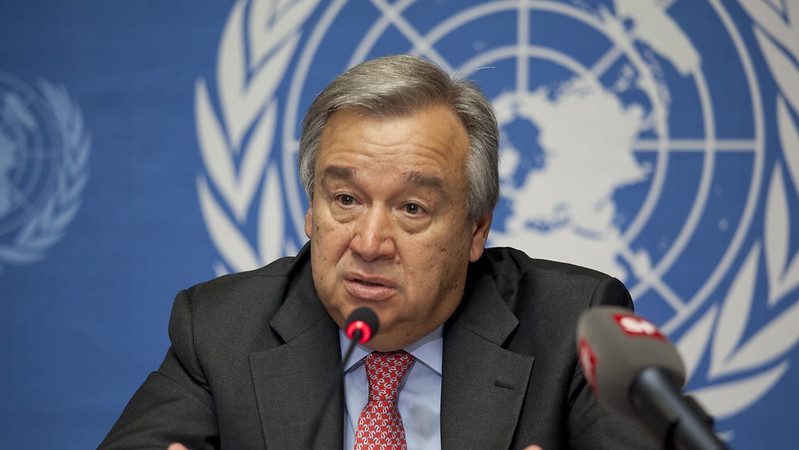The United Nations Secretary General has “no plans” to name a special representative for the safety of journalists, putting on hold a request made by more than 70 media groups and freedom of expression NGOs.
“At present, there are no plans to announce such a position,” a UN spokesman said to news website Eye on Global Transparency.
The site sent a series of questions to the office of UN Secretary General António Guterres in connection with a separate story that quoted sources saying Guterres was not in favour of setting up a special representative.
The articles also marked the International Day to End Impunity for Crimes against Journalists, which was on 2 November.
Guterres’ stand was criticised by Christophe Deloire, Reporters without Borders secretary general, and Agnes Callamard, UN Special Rapporteur on Extra-Judicial Executions.
Reporters Without Borders had made the call for such a post within the UN in 2018, backed by more than 130 media outlets, NGOs and labour unions throughout the world.
The day after. International Day to End Impunity for Crimes against Journalists: how @antonioguterres reacts (or does not react) to the demands of @RSF_inter, @AgnesCallamard and others for the protection of journalists, and how we react to this. https://t.co/H5tNMmexlG #IDEI2019 pic.twitter.com/cvHN9Qyu6d
— Christophe Deloire (@cdeloire) November 3, 2019
Deloire said Guterres had taken steps forward but it was still not enough. “Without an improvement of the safety of journalists, none of the most crucial challenges of mankind will find any solution, including climate change, corruption, and discrimination against women,” he told Eye on Global Transparency.
Callamard, who had made the recommendation to the UN when she investigated the murder of Washington Post journalist Jamal Khashoggi, also expressed her disappointment in a tweet.
Impunity is not a fatality. It is not a curse. It is man made. It is politically made. And politically sustained. We can fight back. The @UN and States must move beyond denunciation and establish actual effective tools to #endimpunity for killing of journalists https://t.co/tWHp3FBsMB
— Agnes Callamard (@AgnesCallamard) November 2, 2019
The UN spokesperson told the news website that Callamard’s idea had been directed to the General Assembly and the Human Rights Council, and not to Guterres. Also, the responsibility for such investigations was with national governments and not the UN.
In a statement issued on 2 November, Guterres said freedom of expression and free media were essential to fostering understanding, bolstering democracy, and advancing efforts to achieve the UN’s Sustainable Development Goals.
He also spoke about the importance of standing up for journalists, truth and justice. “In recent years, there has been a rise in the scale and number of attacks against the physical safety of journalists and media workers, and of incidents infringing upon their ability to do their vital work, including threats of prosecution, arrest, imprisonment, denial of journalistic access and failures to investigate and prosecute crimes against them”.
The proportion of women among fatalities has also grown larger, and female journalists increasingly “face gendered forms of violence, such as sexual harassment, sexual assault and threats”.
Guterres pointed out that “when journalists are targeted, societies as a whole pay a price”.
“Without the ability to protect journalists,” he said, “our ability to remain informed and contribute to decision-making is severely hampered. Without journalists able to do their jobs in safety, we face the prospect of a world of confusion and disinformation”.
The Human Rights Channel of the Council of Europe lists 22 cases of impunity for journalists killed in Europe, including Maltese journalist Daphne Caruana Galizia.
Marija Pejčinović Burić, Secretary General of the Council of Europe, said in a statement that fighting impunity was at the heart of what the Council of Europe stood for, and member states have undertaken to bring criminals to justice, to conduct prompt and effective investigations. They also agreed to ensure that journalists can exercise their profession without fear.
“I therefore call upon member states to carry out investigations and prosecutions that bring the murderers of journalists to justice. I will work with member states, journalists and civil society to bring domestic laws and practices into compliance with obligations under the Convention.”












